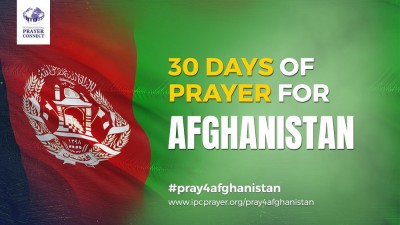Iran: prisons chief apologises
26 Aug 2021The head of Iran's prison service has apologised after hackers leaked videos showing the abuse of detainees at Tehran's notorious Evin prison. The security footage showed guards beating prisoners and dragging one along a floor. Mohammad Mehdi Haj-Mohammadi said he took responsibility for the ‘unacceptable behaviour’. Many political prisoners and dual and foreign nationals are held at Evin. BBC's Jiyar Gol says the leaked videos confirm decades of reports of mistreatment and abuse at prisons across Iran. Also, former political prisoners say the footage is nothing compared to what they experienced in detention. They accuse authorities of routinely using sexual, physical and psychological torture - a charge Iran's government denies. The hacked screen showed the message, ‘Evin Prison is a stain of shame on Raisi's black turban and white beard’ - a reference to Iran's new president, who is a hardline cleric and former judiciary chief.
As if Haiti doesn’t have enough to deal with, gang activity is now complicating earthquake relief efforts. The earthquake death toll stands at 2,200 with at least 340 still missing. Mission Aviation Fellowship (MAF) is conducting emergency medical flights and flying in aid. But since the roads aren’t a great option for transporting relief, the need is overwhelming. MAF’s Dave McCleery says, ‘Gang activity has affected Port-au-Prince for a long time. They have taken control of and closed the main roads into the southern peninsula where the earthquake took place. This is a real concern because of the large quantity of aid that’s needed. We can certainly fly in and deliver it, but it’s much more expensive and takes a lot longer than if it’s delivered by road.’
Taiwan: homegrown vaccine criticised
26 Aug 2021Taiwan is administering its domestically developed Covid-19 vaccine, amid criticism that its approval was rushed. The Medigen vaccine had not completed phase three trials when it was granted emergency approval by regulators. Medigen said there were no major safety concerns, and antibodies created were no worse than AstraZeneca's vaccine. It is expected to complete the final round of trials being held in Paraguay later this year. Taiwan's vaccination efforts have been hampered by delivery delays and hesitancy amongst its population. President Tsai Ing-wen led the way in receiving the Medigen jab on 23 August. The objections have mainly come from the opposite political party, the Kuomintang, who say it is unsafe. More than 700,000 people have already signed up for the vaccine, which requires two doses 28 days apart. Less than 5% of Taiwan's population is fully vaccinated: around 40% have received just one dose.
We are so grateful for your prayers for Afghanistan during this critical season. We are sensing an important window this next month for God’s saints around the world to cry out with fervent, desperate prayer for the truth of the Gospel to go forth in power and love in the land of Afghanistan.
We would like to call for a 30 day season of daily prayer starting today Monday August 23rd through to Tuesday September 21st around these 5 prayer points below.
Please join us as the Lord leads you.
Prayer Points:
- Pray for the power of the Gospel to reach the lost and broken! Focus on the gospel as the answer not the government. 1:16
- Pray for Laborers to be thrust forth in the harvest fields of Afghanistan. Matthew 9:37-38
- Pray for the hurting brothers and sisters enduring severe persecution and suffering during this season. Let’s stand together with them in prayer! 13:3
- Pray for finances for the Harvest. Get behind RUN (runministries.org) and/or numerous other ministry initiatives that understand how to multiply in spiritually dark times. Phil 4:19
- Pray for an increase in spiritual discernment and wisdom for our government leaders around the world. 1 Timothy 2:1-5
Let’s cry out with Courageous and Bold Faith according to Ephesians 3:20-21,
“Now to him who is able to do far more abundantly than all that we ask or think, according to the power at work within us, 21 to him be glory in the church and in Christ Jesus throughout all generations, forever and ever. Amen”
We will be publishing further updates during these 30 Days at www.ipcprayer.org/pray4afghanistan
On Tuesday, the Paralympics gets underway in Tokyo.
IPC and our friends at Japan Evangelical Missionary Association (JEMA) and Japan international Sports Partnership (JiSP) have been inviting the world to be praying for the Games, the athletes and specifically for Japan during the Olympic season. Our target has been to raise a million hours of prayers.
The primary reason - Japan is the second largest unreached people group in the world and really needs our prayers.
There’s been a quarter of a million hours of signed up prayer to date from across 86 countries. We know too of tens of thousands of hours of “not-signed-up”.
As the Paralympics, like the Olympics gets underway with no spectators, so we turn again to prayer.
While we are inviting all generations both across Japan and around the world to pray we are particularly appealing to the next generation to pray for Japan. We have just launched an Instagram campaign, a Youtube Channel and a youth-focused website at www.japan1million.world.
Please would you consider taking part by:
- Signing up, if you haven’t already, and receive prayer points each day by email.
• Sign up your ministry, church or organisation.
• Help get the message out by forwarding this email and sharing the online posts.
We all pray and long to see spiritual breakthroughs across Japan. As Hudson Taylor said, “When we work, we work, but when we pray, God works."
We believe transformation is coming.
Together for 1 million!
More info and sign up at www.japan1million.world
The Global Day of Hope broadcast marks the end of the 90 Days of Hope. The themes have been to:
PRAY - PRAY FOR YOUR FRIENDS, FAMILY, COMMUNITY, NATION, AND THE WORLD TO KNOW THE HOPE OF JESUS
CARE - CARE FOR THE PEOPLE IN YOUR COMMUNITY WHO ARE LONELY OR IN NEED TO GIVE THEM HOPE
SHARE - SHARE YOUR HOPE STORY AND THE GOOD NEWS THAT JESUS SAVES WITH ONE PERSON EVERY DAY
Central to the Global Day of Hope is a 1-hour global celebration of hope with special guests from around the world including Ben Fitzgerald, Andy Byrd, Sean Smith, Scott McNamara, Ben Hughes, Steve Chong, Jacqui Ford, Graham Power, Werner Nachtigal, Greg Stier, Anja Letsatsi, Andrew Scarborough, Lael Piteau, Gregory Modungwa, Nathaniel Oliveri, Josh Wood, Sarah Torres, Jason Hubbard, Pastore Roselen Boerner Faccio, Daz Chettle, Monique Lopez Ong, Adam Shepski, Pastor Margaret Court, Pat Steele plus many more.
We encourage you to host a watch party, invite friends to watch with you and share with people you know are searching for hope in this time.
Now is the time to release the sound of hope!
Do watch and share this broadcast! More information and sign up at: https://www.globaldayofhope.com/
Christian actress talks about Jesus
19 Aug 2021The Christian actress Letitia Wright speaks out about Jesus in public and has turned down big roles because of her ethics. She starred in Doctor Who, Black Panther and Black Mirror. She took part in a devotional series with the YouVersion Bible app and posted about her faith on Instagram. In an interview ahead of the new drama I am Danielle on Channel 4, she told how her faith sustains her in her career: ‘The world is so fickle and there's not much that you can really put your hope in to make you feel whole. Even now I'm going through a new transformative stage with understanding who I am, but with God you can really get through these situations. It's been beautiful to have my faith in Jesus, which is worth more than anything.’
Honouring Christ at the Olympics
19 Aug 2021For Christians there were many precious moments at the Olympics that were little reported by mainstream media. Olympians from across the nations were committed Christians and quick to publicly give glory to the King of Kings. When the Fiji rugby team won a gold medal, they formed a circle in the centre of the field and burst forth in a rendition of a gospel hymn; ‘We have overcome by the blood of the lamb in the Word of the Lord, we have overcome’. Also, British swimmer Daniel Jervis, who came fifth in the men’s 1500m freestyle, was quick to praise God: ‘The thing I’m most proud of in my life is that I’m a Christian, and obviously God was with me tonight, and I’m just really grateful to be representing Him’.







